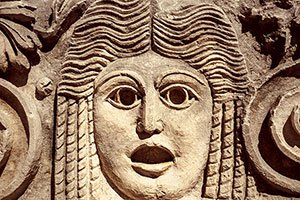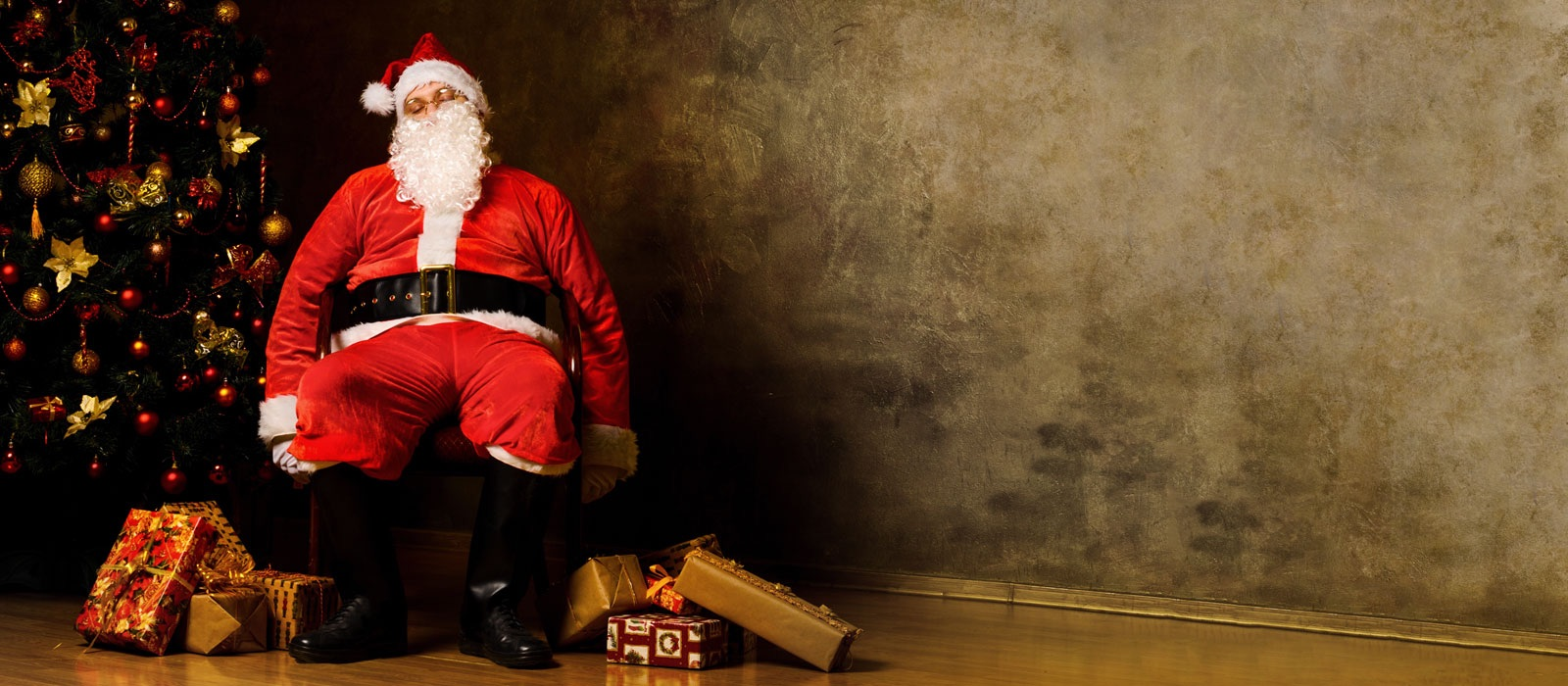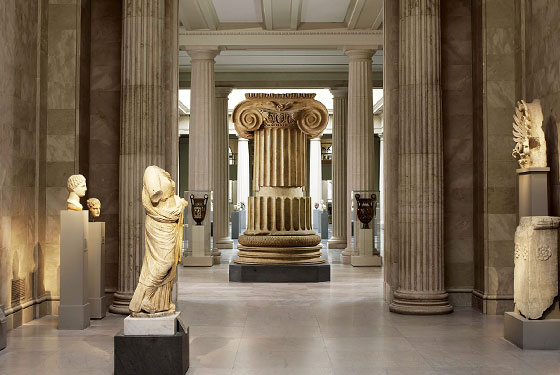Follow blogger Paige Pinto as she embarks on her final year of an undergraduate degree in Humanities and English.
April 18, 2017
Last Words
As I’ve written this blog over the course of the year, I’ve done my best to be honest about my experience — as a Carleton student, as an English student, as a fifth-year student. Sometimes that honesty has simply been to represent various moments as truthfully as I could. My mother can probably attest that school is, and always has been, a stressful experience for me. I didn’t hide that. But here’s the thing: school – learning, reading, writing, discussing — has also always been one of the greatest (in all meanings of the word) aspects of my life. I love it, and, when I’m not stressed, I miss it.
 Graduation has been on my mind a lot this year, perhaps too much, because it means change; it means, eventually, no school. It means I need to define myself by something else. I wonder if that fear (yes, fear) has tinged my writing, making things out to be worse than they are; I wonder if I’ve shown too much of the uncertainty and doubt, and not enough of the good.
Graduation has been on my mind a lot this year, perhaps too much, because it means change; it means, eventually, no school. It means I need to define myself by something else. I wonder if that fear (yes, fear) has tinged my writing, making things out to be worse than they are; I wonder if I’ve shown too much of the uncertainty and doubt, and not enough of the good.
This is not a retraction. As I said, I’ve been honest. I stand by the experience of sometimes crippling anxiety that comes with life, and with this time of life. But this is an amendment: it’s been wonderful, too.
I’m not sure I understood what was really happening to me — what it really meant to me to be in university — until my third year, when I received a book for Christmas: The Opposite of Loneliness by Marina Keegan. Keegan died in 2012, five days after she graduated from Yale, and The Opposite of Loneliness is a book of her essays and short stories, published posthumously. The titular essay, “The Opposite of Loneliness,” written the day before her commencement ceremony, describes her experience at university, which she characterizes with this feeling: the opposite of loneliness. Read this essay. It is beautiful. It captures the strange connectedness you feel when you’re in school, the affinity you have with people you don’t even know, because of your shared experience — and it captures the fear of losing that.
This is one of the first times in my life I’m moving on from something I am afraid to lose.
As much as I feel that I will be nothing — vaporous, unanchored — without school, I know that isn’t entirely true, for the simple fact that the benefits I’ve received from coming here to university haven’t been solely institutional. It’s not the routine — the periodic essay-writing, note-taking, library-book-returning grind — that defines me here. It is the people, the learning, the opportunity I have had to grow, change, discover, read, express — to feel not lonely.
I am afraid to lose: the inspiring and talented writing community I have found through the English Lit Society, the loose comradery of making small talk before a lecture, the constancy of quietly working in the same spot on campus (approximately every day for four years) and feeling at home there. These are the good things.
I am grateful for the sentiment and poignancy of a final lecture, for the collection of books I have amassed (which still spills off my shelves, and soon, I guess, will be stored in boxes as I move back home), for the friends I made and the things I wrote. These are the things I am leaving, the things I hope you have had and will have. These are the things that have changed me in the best way.
One more: I am grateful for the invitation I received in September to blog my year, which has allowed me to self-indulgently self-reflect on a public scale — but also to express and share the storm-cloud of emotions stirred up by my final year.
So, thank you.
March 13, 2017
Tremors
This blog, like my last, has taken me a while to write because I needed a while to figure out where I stood. Where I’m standing. As I told a friend last week: it seems like every time I’ve come close to identifying what I’m feeling and what’s going on around me, something changes, and I have to start all over. The ground is shifting.
 I think this is what your last year feels like. I want to keep my head down right now, to walk in a straight line, to work hard and finish strong — but I am being pulled away, constantly, by the distraction of uncertainty. At the beginning of the semester, it was easy to resolve to stay focused, stay humble, keep learning. Not so anymore. The chasm of graduation is more overwhelming the closer you get to the edge.
I think this is what your last year feels like. I want to keep my head down right now, to walk in a straight line, to work hard and finish strong — but I am being pulled away, constantly, by the distraction of uncertainty. At the beginning of the semester, it was easy to resolve to stay focused, stay humble, keep learning. Not so anymore. The chasm of graduation is more overwhelming the closer you get to the edge.
What it comes down to is this: in March, less than two months out from my final exam at Carleton, stasis is insupportable. I have to begin making decisions, looking forward, accepting inevitable change.
How, exactly, does one do that? Can somebody tell me?
Stasis is insupportable. The ground is shifting. I cannot remain any longer where I’ve been. It’s occurred to me that if I don’t go after the things I want, I won’t get them. (I know, right?) So I need to conquer my indecisiveness.
The last time I made a life decision this large, I was in high school. I wasn’t even technically an adult. My parents and I made the decision together. Now, after five years of university, I am in charge of my life in a way that I have never been before (and I suspect that as time passes this trend will persist). I have been doing a lot of hard thinking lately (read: a lot of staring into space), wavering between confidence and crippling self doubt, and I’ve concluded that I must — again, in an unprecedented way — take responsibility for my own life.
For some people, that will probably be easier than for others, i.e. me. I have been supported by my parents, sheltered from life by my introversion and even my education. I read about things; I don’t do them.
I have been willing to appease others — roommates, parents, friends. I have a tendency to avoid confrontation, to be passive, to be safe. That, like everything else, needs to change. I’ve been accepted to graduate studies and so I need to decide where to study. And even after I make that decision, I’ve only staved off the real world for, like, a year.
Am I ready? To move on? To be okay without school, that structural influence that has regimented and defined my everyday life since I was in kindergarten? To face new people, new places, new situations?
Am I brave?
I have to be. If I am honest with myself, I know what I want in my life. I thought, for so long, that I didn’t. But we suppress parts of ourselves because they don’t fit what others expect of us, or because the things we want don’t seem realistic. Maybe you don’t have that problem, but I do.
Stasis is insupportable. The ground is shifting. I cannot remain any longer where I’ve been. It’s occurred to me that if I don’t go after the things I want, I won’t get them. (I know, right?) So I need to conquer my indecisiveness. I may have to be a little bit aggressive, for once in my life. I have to grow up.
I have to be brave.
January 24, 2017
Hamartia
When I arrived in January and disembarked, nothing felt new. If you’ve read the blog I wrote in December, you’ll remember that my life was stretched with the tension of finality (essays, exams, etc.). January was like a sunny morning to which I awoke after a terrible, restless sleep.
I’ve spent the past few weeks sitting still, with my feet dangling in the shallow end of the pool, watching, waiting, hesitant. What will 2017 be? What will I be? While I’ve been frantically seeking the ideal day planner and trying to restore some sense of routine to my life, I’ve also been itching with the awareness that this is the beginning of the end. My last semester. (Hopefully. I’m planning to pass all my courses.)
Since September I’ve been counting my blessings and evaluating my university experience as though it’s already over. It’s tempting to duck my head into my turtleneck and disappear into schoolwork, to keep moving until I’m through and out. But something entirely fortuitous has prevented me from following my instincts and doing so: somehow — surprisingly, to my egoistic and obstinate mind — I am still learning.
This is perhaps the most significant revelation I’ve had all year, and it’s glaringly obvious. My degree has always been teaching me that our questions will never end, that we will never know all the answers, and that, at the end of the day, we realize how clueless we are. All the same, it’s been a long, long time since I got lost in Carleton’s tunnels. I’m comfortable going to my professors’ office hours, and the process of writing an essay, though never smooth, is a familiar frenemy. It’s easy to become complacent, and I have.
 There is no place for complacency in learning. There is no place for boredom, superiority, impatience. There is no place for comfort. I am guilty of all these things.
There is no place for complacency in learning. There is no place for boredom, superiority, impatience. There is no place for comfort. I am guilty of all these things.
Luckily, the world has intervened. I’m taking a class in Humanities called “Science in the Modern World.” (Science? What is science?) I am learning Old English, a new-to-me language. My 18th Century Studies seminar is essentially an exercise in doing real, archival, academic research. This is not read-a-book-write-an-essay. It’s not stare-at-the-wall-and-think-really-hard. I must learn and engage with concepts I have never heard of before and do not understand. I have to develop new skills and new study habits.
This is uncomfortable.
Thank God for that. It would be a waste of five years if I’d left here believing myself to be educated, but not remembering my limitations, not having humility.
This is the beginning of a new, not last, semester. Before I graduate, I want to once more relish the twinge of anxiety that comes with realising just how much I do not know.
Paige Pinto (HUMS/English), has just published an article in Persuasions.
December 14, 2016
Writer’s Block

This blog has been the most difficult to write so far, and for a simple reason: I’m not inspired.
What to talk about in December? Christmas, obviously; exams and final papers, if I want to hit home the bucketloads of stress which right now are pouring down on all of our heads.
Yesterday I handed in my last essay, and then I went Christmas shopping. It was a lovely feeling because I wasn’t wearing a backpack for the first time in a very, very long time. Last night I slept, without the dread of a due date lingering on the backs of my eyelids. But in spite of all that, I haven’t hit the reset button. I’m not magically stress-free and energized. No, I am still exhausted, and I still have writer’s block. Can you tell? Do my sentences feel a little sloth-like? They do to me.
But, Paige. You’re in English (sort of)! Didn’t you come to university to write papers?
This is the reality of this time of year. Maybe once I’m no longer a student, I’ll still be suffering burnout, but instead because I’ll have time to do all the holiday activities and I’ll drive my body to the breaking point with baking, shopping, visiting friends, planning gifts.
I can’t make that sound bad. It sounds so much better than writing papers.
But, Paige. You’re in English (sort of)! Didn’t you come to university to write papers?
Yes. Yes, I did. And I don’t know what I was thinking.
If this blog seems like a downer, you should see my first draft. It drips with bitterness. It seems that being uninspired also makes it difficult to be inspiring.
I should be inspiring, because I know that around the corner from now, all the emotional and mental drainage of these two weeks will be a distant memory. I go through this every year. Shouldn’t I be treasuring this, my last December as a Carleton undergrad? Shouldn’t I be waxing nostalgic about the last sleepless nights and the curative red Starbucks cup?
I can’t. This is the part of university that I will not miss, but it’s also (I suggest) one of the more universal experiences. Every time I think I’ve hit my limit, I see the circles under someone else’s eyes and know that I’m not alone.
Can you have an existential crisis if everyone else is, too? Asking for a friend.
Happy Holidays! I’ll see you on the other side.
November 8th, 2016
On learning, re: my life in pieces
Snip, snip, go the scissors of the Fates.
Sometimes, my life lies in pieces around me. Consider my apartment: books everywhere, post-it notes with lists of readings, essays to edit; literal pieces (of literature) splay my education languorously across minimal square footage. There is a papered materiality to studying English that I cannot escape. My schoolwork surrounds me in fragments. Loose paper, all my pens four-fifths out of ink.
I begin to think that this is how life works: perhaps it is that everything of import has been sent through a shredder and then lies around you, waiting for reassembly.

Georges Seurat’s A Sunday on La Grande Jatte
Near the end of reading week, I was standing in the Metropolitan Museum of Art, staring at Georges Seurat’s A Sunday on La Grande Jatte – you know the painting I mean, the Pointillist one, with the woman on the right side who has a pet monkey. I’ve liked it since I’ve known it, which dates to my art history class in second year. I never thought I would see it in real life. I don’t know what it is about the Met, but it pulls together disparate things. There I am, in 19th century European Paintings, reliving art history. Then, downstairs, to Greek and Roman art, where I find stelae from the Temple of Artemis at Sardis and the gymnasium at Pergamon, places I visited in a study abroad class with the Greek and Roman Studies department in Summer 2015. And so the windy day on the Pergamon acropolis is before me.

Stelae from the Temple of Artemis at Sardis, ca. 300 B.C. Greek and Roman galleries at the Met. |
How do you – suddenly and obliviously, and in a strange city no less – find yourself confronted by the missing pieces? In the case of the stelae, I mean that literally; they were pieces missing from the places I’d gone across the globe to see. Does it happen often that a poetic and cyclical pattern shapes your life? How do you ever find yourself in this position you’d never thought you’d be in, a position of ecstatic recognition and overwhelming privilege, as though the world literally revolves around you, for you?
When I write an essay, I have to wander around the space I occupy and find the scraps of paper on which I’ve written my thoughts – single words, exclamation points, long block quotations. I gather, compile, assess. This is the puzzle I’ve made for myself, whence the thesis emerges. I draw it out slowly, tease meaning, solve the mystery. Somehow, over the course of five years, my life has worked itself into something similarly cohesive, emergent, and true.
I blame my education, the thing that has taught me to un-puzzle the pieces and to puzzle them further; the thing that has inspired in me a desire to see. I’m not sure when I became willing to travel in spite of fear, when I put the desire to know more about the world over the desire to be comfortable and safe in my own home. Perhaps it’s been lying latent, but recently – in the rooms and halls of this university – the careful hands of brilliant teachers, the ideas and adventures bound up in pages and pages that have passed through my eyes/fingers/brain have drawn it out, teased the meaning out of me, begun to solve the endless mystery of my own life.
October 7th, 2016
Introduction – In the Interest of Full Disclosure
This is a strange experience, writing about myself. My name is Paige.
The thing I probably love most in the world is reading. I mean, my family and friends, and then reading. And writing. Books, etc.
In the interest of full disclosure, I’m not entirely an English student at Carleton; English is my second major, but it’s the department where I feel at home. This is the place where the world has opened up to me in so many ways, and I regret my snobbish self-involvement in my first years here when I didn’t get involved. At the moment, I’m one of the co-presidents of the English Literature Society. That means that I run events and generally do cool things for English students. One of those things is a weekly writer’s circle. In/Words (our student–run magazine!) has a great one as well, but ELS wanted to do something that might be less intimidating to new students and new creative writers. And what I realized at our circle this past Tuesday is that I have an incredible love for this other book-related thing: talking about writing.
I would love to say that my experience in university has been constantly inspiring, that I am a conscientious, motivated student and wake up every morning eager to soak up all that book-learning. And for me, that is true sometimes — even a lot of the time — but not all the time. In the interest of full disclosure, sometimes it gets exhausting/stressful/overwhelming/rough. Life is like that — you know that — not composed solely of perfect moments. The good is interspersed with writing assignments you’d rather not write, studying an author you can’t stand, waiting for what seems like forever for a late bus in the Ottawa winter.
In the interest of full disclosure, sometimes it gets exhausting/ stressful/ overwhelming/ rough.
But then:
Dunton Tower on Tuesday, early evening and the eighteenth floor, so you can see the sun setting. The window in the English Department lounge overlooks the experimental farm. And cozily, excitedly, you settle into that circle and know that these people — your cool, talented peers — are about to share with you something they’ve created, with their own hands and minds, perhaps in their bedrooms in the early hours of the morning or strung out on coffee between classes… and you get to read it.
That, to me, is precious.
This is life in English: it’s school, but it’s also peppered with those instances of inevitable wonder — a perfect phrase in a poem, an insight that makes the world clearer, sharper, more sensible, even just for a moment. It’s inspiring.
I’m grateful for the privilege to share my thoughts with you over the course of my final year. Happy Thanksgiving!